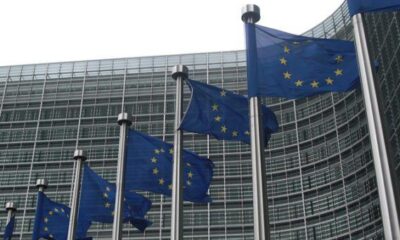

Energy
EU Must Do More To Protect Citizens From Health Threats
Auditors have have urged the EU to do more to protect citizens from pandemics and other serious cross-border health threats.
EU-wide planning to protect citizens from serious health threats such as pandemic influenza suffers from significant weaknesses, according to a new report from the European Court of Auditors. Although a number of important steps have been taken in recent years, Member States and their public health authorities still need to work together better, say the auditors.
EU Member States have the principal responsibility in the area of public health. The European Commission’s role consists mainly of providing support and taking complementary action. The EU has identified serious cross-border threats to health as an area where Member States can act more effectively together. The EU Decision on serious cross-border threats to health in 2013 introduced important changes to advance planning and response coordination. It also strengthened the Health Security Committee set up informally by the Council of Health Ministers in 2001.
The auditors concluded that although the 2013 Decision was an important step to improve the EU’s health security framework and better prepare the EU to deal with serious threats to health, significant weaknesses at Member State and Commission level remain. They also concluded that although the Health Security Committee has proved to be very important, it faces strategic and operational challenges that need to be resolved.
Increased travel and trade allow diseases to spread rapidly across borders, which means health security in one Member State often depends on that of its neighbours
“Increased travel and trade allow diseases to spread rapidly across borders, which means health security in one Member State often depends on that of its neighbours,” said Janusz Wojciechowski, the Member of the European Court of Auditors responsible for the report. “More needs to be done to address these weaknesses in planning and coordination if EU citizens are to benefit fully from what has been set up so far.”
The auditors found delays in implementing and developing the 2013 Decision. Coordination of preparedness planning was improved, but the procedures need to be more robust and better defined. For example, Member States have not sufficiently speeded up their joint purchase of pandemic influenza vaccines and there is no EU-wide system to address urgent needs for vaccines or other medical countermeasures.
The existing systems for early warning and response and epidemic surveillance have been operational for several years and their important role at EU level is widely recognised, say the auditors. However, there is scope to upgrade the early warning and response system. The latest updates to procedures for dealing with serious chemical and environmental threats have not yet been tested.
The auditors found weaknesses in the performance of the EU’s Health Programme for protecting citizens from health threats. Most of the audited health threat activities between 2008 and 2013 showed a lack of sustainable results, despite performing well in terms of producing their agreed deliverables. This limited their contribution to protecting citizens from health threats. They also found weaknesses in measuring the health threat objective for the period 2014 to 2020 and a relatively low level of spending between 2014 and 2016.
The auditors identified a number of gaps in the Commission’s internal coordination of health security activities across different programmes and services. They also concluded that more work needs to be done to make cooperation agreements between the Commission’s crisis management structures fully operational. Finally the Commission needs to improve its management of its Health Emergencies Operations Facility to better equip it to deal with future health crises.
In their report, the auditors make recommendations to the Member States and to the Commission:
- Speed up the implementation of the 2013 Decision, notably by developing a strategic roadmap for the Health Security Committee; by enhanced performance monitoring, and acceleration of the joint procurement of vaccines and other medical countermeasures;
- Upgrade the Early Warning Response System and develop more integrated solutions for risk management;
- Improve the sustainability of results from co-funded actions for health threat protection and the related performance measurement methodology;
- Develop a more structured coordination between different Commission services for health security activities.
Special Report No 28/2016: “Dealing with serious cross-border threats to health in the EU: important steps taken but more needs to be done” is available in 23 EU languages.






























